日本福岛黑鲉鱼核辐射超标 但允许韩国参与监督核废水排海
- 2021-04-20 16:29:38
- 点赞量:5792
- 点击量:82832
- 作者:秘书处Secretary's Office
日本政府19日宣布,因被检测出放射性物质超标,福岛县海域的黑鲉被禁止上市。这一决定打破了自去年2月福岛县海域海产品上市限制被全面解除的情况。
The Japanese government announced on the 19th that it has banned the sale of black Sebastes from the waters of Fukushima Prefecture due to the detection of excessive radioactive substances. This decision broke the situation that the restrictions on the listing of marine products in Fukushima Prefecture were lifted in February last year.
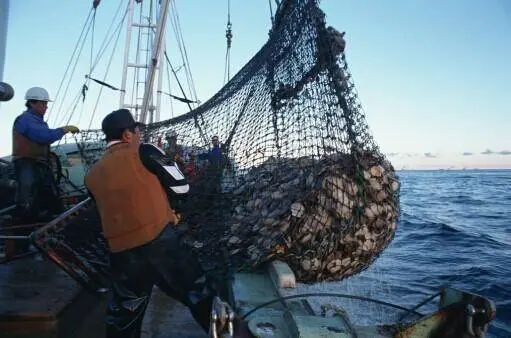
据日本媒体援引福岛县消息报道说,本月1日在福岛县海域捕捞的一条黑鲉体内被检测出270贝克勒尔放射性物质铯,超出《食品卫生法》所规定的标准值。福岛县说,这条黑鲉是在距福岛县南相马市13公里的37米水深处捕捞的。
According to Japanese media, 270 Becquerels of cesium was detected in a black Sebastes fish caught in the waters of Fukushima Prefecture on January 1, exceeding the standard value stipulated in the food hygiene law. Fukushima said the fish was caught at a depth of 37 meters, 13 kilometers from nanxiangma city in Fukushima Prefecture.
今年2月,福岛县渔业协同组合联合会在试验打捞作业时就发现该县黑鲉体内所含放射性物质超标,并已主动停止黑鲉上市。
In February this year, the Fukushima fishery cooperative association found that the radioactive substance in the body of black Sebastes in the county exceeded the standard during the experimental fishing operation, and it has taken the initiative to stop the black Sebastes from going on the market.
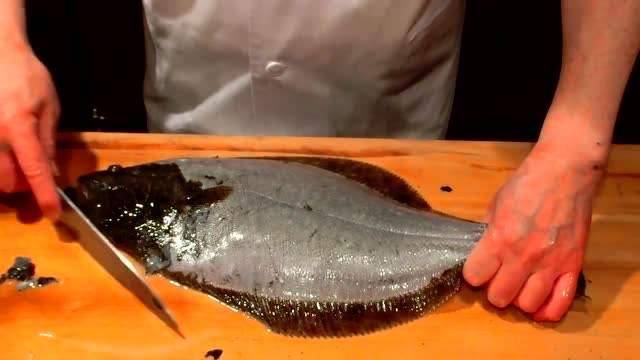
东京电力公司福岛第一核电站事故发生后,最多曾有44种海产品被限制上市,但自去年2月25日起上述海产品上市限制被全面解除。
After the Fukushima Daiichi nuclear power plant accident of Tokyo Electric Power Company, up to 44 kinds of seafood were restricted from listing, but since February 25 last year, the restrictions on the listing of seafood were completely lifted.
日本禁止福岛黑鲉鱼上市
Japanese ban on sale of Sebastes Fukushima
由于放射性物质超标,日本政府宣布禁止福岛县海域的黑鲉鱼上市,为14个月来首次做出类似限制。
Due to excessive radioactive substances, the Japanese government announced a ban on the listing of black Sebastes in the waters of Fukushima Prefecture, making a similar restriction for the first time in 14 months.
同一天,日本东京电力公司宣布将从下月起提交福岛第一核电站核污染水排放日程表。福岛县浪江町市长已要求东电就排放核污染水将给当地带来的损失进行赔偿。
On the same day, Japan's Tokyo Electric Power Company announced that it would submit a schedule for the discharge of nuclear polluted water from the Fukushima Daiichi nuclear power plant from next month. The mayor of Langjiang Town, Fukushima Prefecture, has asked TEPCO to compensate for the local losses caused by the discharge of nuclear polluted water.
联合国人权专家此前发表联合声明,对日本排核污染水入海的决定“深感遗憾”,指出此举可能影响太平洋地区数百万人。
UN human rights experts issued a joint statement earlier, expressing "deep regret" over Japan's decision to discharge nuclear polluted water into the sea, pointing out that the move may affect millions of people in the Pacific region.
据NHK电视台4月19日报道,福岛县当局在上周的检测中发现,当地捕捞的黑鲉鱼中放射性铯超标。
According to NHK TV station on April 19, authorities in Fukushima Prefecture found that the radioactive cesium in the local black Sebastes fish exceeded the standard in last week's test.
超标的黑鲉鱼于4月1日在南相马市附近37米水深处被捕捞。黑鲉鱼体内发现了270贝克勒尔/千克的放射性物质铯,日本对食品中铯含量的限制为100贝克勒尔/千克。
The black Sebastes, which exceeded the standard, was caught at a depth of 37 meters near nanxiangma city on April 1. 270 Becquerels / kg of cesium was found in black Sebastes. The limit of cesium content in food in Japan is 100 Becquerels / kg.
周一,日本政府宣布福岛县海域的黑鲉禁止上市。
On Monday, the Japanese government banned the sale of black Sebastes in the waters off Fukushima Prefecture.
今年2月,当局一度在福岛的黑鲉鱼中发现铯超标。由于此后的检测中没有发现类似情况,政府没有实施限制措施。但当地渔民主动停止捕捞黑鲉鱼。
In February this year, authorities once found cesium in black Sebastes in Fukushima exceeding the standard. Since no similar situation was found in subsequent tests, the government did not implement restrictive measures. But local fishermen took the initiative to stop fishing for black Sebastes.
福岛第一核电站事故后,日本曾有数十种海产品被限制上市,但限制从去年2月起全面取消。
After the Fukushima Daiichi nuclear power plant accident, Japan has restricted the listing of dozens of seafood, but the restrictions have been lifted since February last year.
就在黑鲉被禁止上市同一天,东京电力公司表示,该公司将从下月开始向日本原子力规制委员会提交福岛第一核电站核污染水排放日程表。
On the same day that black Sebastes was banned from listing, TEPCO said it would submit a schedule for the discharge of nuclear polluted water from the Fukushima Daiichi nuclear power plant to Japan's atomic force Regulatory Commission from next month.
据新华社报道,开始排放前,东电需向日本原子力规制委员会申请审查排放核污染水的实施计划,审查内容包括海水稀释放射性物质氚浓度的设备设计、设备性能确认、核污染水排放程序等。计划获批后,东电再着手建造设备并加强海洋中放射性物质监测等。
According to Xinhua news agency, TEPCO needs to apply to the Japan Atomic Force Regulatory Commission for a review of the implementation plan for the discharge of nuclear polluted water, including the design of equipment for diluting tritium concentration in seawater, the confirmation of equipment performance, and the discharge procedure of nuclear polluted water, etc. After the plan is approved, TEPCO will start to build equipment and strengthen the monitoring of radioactive substances in the ocean.
上周,日本政府正式决定将福岛第一核电站的125万吨核污染水经过滤并稀释后排放入海,排放将于两年后开始。
Last week, the Japanese government officially decided to filter and dilute 1.25 million tons of nuclear polluted water from the Fukushima Daiichi nuclear power plant and discharge it into the sea. The discharge will begin in two years.
日本考虑韩国参与监督核污染水排海
Japan considers South Korea's participation in monitoring the discharge of nuclear polluted water into the sea
19日,韩国外交部长官郑义溶就日本决定将福岛核电站核污染水排海一事表示,如果日方能够按照国际原子能机构(IAEA)规定的标准程序对核污染水进行处理,韩国没有必要坚持反对。同日,日本驻韩国大使相星孝一表示,日方考虑让韩国参与监督福岛核污水排放,但称相关事宜需要同IAEA与韩国政府协商决定。
On the 19th, South Korea's foreign minister Zheng Yirong said on Japan's decision to drain the water from the Fukushima nuclear power plant into the sea that if Japan can treat the water according to the standard procedures set by the International Atomic Energy Agency (IAEA), South Korea has no need to insist on opposing. On the same day, Japan's ambassador to South Korea, Shoichi Xiangxing, said that Japan considered allowing South Korea to participate in the supervision of Fukushima nuclear sewage discharge, but said relevant matters need to be decided through consultation with the IAEA and the South Korean government.
据韩联社19日报道, 在韩国国会举行的对政府的质询会上,郑义溶在被问及“政府反对日本排放核污染水的立场是否生变”时做出了上述表态。郑义溶进一步解释称:“比起反对,韩国政府坚持将国民健康和安全放在首位,向日方提出了三项根本要求。”具体来看,郑义溶所说的三项要求,一是需要日方提供关于排放核污染水安全性的充分的科学证据,二是需要日韩政府开展充分的事前协商,三是让韩方专家、研究所参与国际原子能机构的验证过程。
Zheng Yirong made the above statement when asked "whether the government's position against Japan's nuclear water pollution has changed" at a question meeting held by the South Korean parliament, Yonhap reported on the 19th. Zheng Yirong further explained: "compared with opposition, the South Korean government insists on putting national health and safety in the first place and puts forward three fundamental requirements to the Japanese side." Specifically, the three requirements mentioned by Zheng Yirong are: first, the Japanese side needs to provide sufficient scientific evidence on the safety of nuclear polluted water discharge; second, the Japanese and South Korean governments need to carry out sufficient prior consultation; third, the South Korean experts and research institutes need to participate in the verification process of the International Atomic Energy Agency.
连日来,韩国国内对核污染水排海一事抗议声音不断。《韩国日报》报道称,国际舆论可以集合在一起向日本施压,然而如果没有美国的参与,一切并不容易。郑义溶对此表示,美方表态与韩方判断存在较大出入,政府已通过多种渠道向美方阐明立场并寻求理解。但双方在“该问题须获国际原子能机构的合格判定”这一基本原则上保持一致。同时,韩方也正在讨论日本实际排放污染水时可行的各种有效应对方案。
In recent days, South Korea has been constantly protesting against the discharge of nuclear polluted water into the sea. "Korea Daily" reported that international public opinion can come together to put pressure on Japan, but without the participation of the United States, everything will not be easy. Zheng Yirong said that there is a big discrepancy between the US side's position and the South Korean side's judgment, and the government has clarified its position to the US side and sought understanding through various channels. However, the two sides agreed on the basic principle that "the issue must be qualified by the International Atomic Energy Agency". At the same time, the South Korean side is also discussing various feasible and effective solutions to Japan's actual discharge of polluted water.
相关报道:
Related reports:
当地时间4月13日,日本政府决定将上百万吨福岛第一核电站的核废水排入太平洋,此行为立刻遭到国际社会谴责和质疑。日本为何冒天下之大不韪也要排放核废水?除了排到太平洋里,真的没别的招儿了吗?对于日本极不负责的行为,有没有法律限制?新华网记者第一时间独家连线了中国政法大学教授、国际环境法研究中心主任林灿铃和中国生态学学会理事陈尚。
On April 13 local time, the Japanese government decided to discharge millions of tons of nuclear waste water from the Fukushima Daiichi nuclear power plant into the Pacific Ocean, which was immediately condemned and questioned by the international community. Why does Japan want to discharge nuclear waste water at the risk of the world's great condemnation? Is there really no other way except to discharge it into the Pacific Ocean? Are there any legal restrictions on Japan's extremely irresponsible behavior? Xinhuanet reporter contacted Lin Canling, Professor of China University of political science and law and director of international environmental law research center, and Chen Shang, director of China ecological society, for the first time.
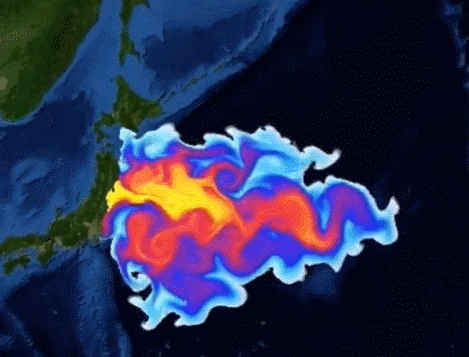
核废水里的“氚”有什么危害?
What is the harm of tritium in nuclear waste water?
据德国某海洋科学研究机构计算,福岛核电站废水一旦排海,57天内放射性物质将扩散至太平洋大半区域。核废水入海之后,直接对海洋环境、海洋生物造成放射性污染,间接会导致海洋生物的基因突变,产生无法预估的后果。更夸张的是,日本政府竟然推出“放射性氚”吉祥物,引发网民痛斥!那么福岛核废水里的“氚”到底是个啥呢?
According to the calculation of a marine scientific research institute in Germany, once the waste water from the Fukushima nuclear power plant is discharged into the sea, radioactive materials will spread to most of the Pacific Ocean within 57 days. After nuclear waste water enters the sea, it will directly cause radioactive pollution to the marine environment and marine organisms, and indirectly lead to gene mutation of marine organisms, resulting in unpredictable consequences. What's more, the Japanese government even launched the mascot of "radioactive tritium", which caused netizens to denounce it! So what is tritium in Fukushima nuclear waste water?
氚是氢的放射性同位素,带有放射性,会发生β衰变,放出电子变成氦-3,半衰期为12.43年。在自然界中存在极少,主要是利用金属锂-6或它的合金在核反应堆内经中子照射产生。
Tritium is a radioactive isotope of hydrogen, with radioactivity. It will undergo beta decay and release electrons to become helium-3, with a half-life of 12.43 years. It is rare in nature, mainly produced by neutron irradiation of lithium-6 or its alloy in nuclear reactor.
陈尚介绍,这些废水经过处理,依然还有较高浓度的放射性氚,是无法消除的。排入海洋后,氚还会产生低强度的β射线,有可能长期影响鱼类、浮游生物、底栖生物、鸟类等生物多样性,通过海流扩散,氚会扩散到东海、黄海、渤海等海域。
Chen Shang said that after treatment, there is still a high concentration of radioactive tritium in the wastewater, which can not be eliminated. After being discharged into the sea, tritium will also produce low-intensity beta rays, which may affect the biodiversity of fish, plankton, benthos, birds and so on for a long time. Through the current diffusion, tritium will diffuse to the East China Sea, Yellow Sea, Bohai Sea and other waters.
日本真的没别的招儿了吗?
Is there really no other way for Japan?
大量被污染的冷却水,除了排放到海洋当中去,难道就没有其他的解决办法了?事实并非如此,相反从科学原理上来说,处置核废水的方法并不少。
A lot of polluted cooling water is discharged into the ocean. Is there no other solution? In fact, this is not the case. On the contrary, according to scientific principles, there are many ways to dispose of nuclear waste water.
自2013年以来,日本政府就污水处置方式,提出了五种方法,包括:地层注入、排入海洋、蒸汽释放、氢气释放和地下掩埋。之后,日本经济产业省组织的专家委员会于2020年2月提交报告书,认为“最实际的解决方法”,是将核废水稀释排放入海或蒸发排入大气。
Since 2013, the Japanese government has proposed five methods for sewage disposal, including formation injection, discharge into the sea, steam release, hydrogen release and underground burial. After that, the expert committee organized by Japan's Ministry of economy, industry and technology submitted a report in February 2020, believing that the "most practical solution" is to dilute the nuclear waste water into the sea or evaporate it into the atmosphere.
不过,正如经济产业省专家会议报告书所写:“排放入海所需耗时最短,花费也最少”。由此,核废水排放入海选项被选中。
However, as stated in the report of the expert meeting of the Ministry of economy, industry and technology, "it takes the shortest time and the least cost to discharge into the sea". Therefore, the option of nuclear waste water discharge into the sea is selected.
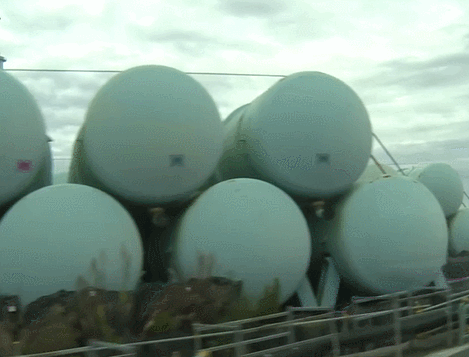
处理过的核废水就能喝吗?
Can the treated nuclear waste water be drunk?
为了让国际社会接受往太平洋排放核废水,日本副首相兼财务大臣麻生太郎称“处理过的核废水喝了也没什么问题”。对此,有日本网友愤怒发帖:“如果你真的这么想的话,那你先喝吧!”
In order to let the international community accept the discharge of nuclear waste water into the Pacific Ocean, Japanese deputy prime minister and Finance Minister Taro Aso said that "it's no problem to drink the treated nuclear waste water.". In response, a Japanese netizen angrily posted a post: "if you really think so, then you drink first!"
陈尚认为,放射性废水经过处理后不能用于灌溉园林、补充景观河流,更不能用于人和动物饮用。废水处理过后即使达到饮用水标准,也是不能饮用的。
Chen Shang believes that after treatment, radioactive waste water can not be used to irrigate gardens, supplement landscape rivers, let alone for human and animal drinking. After treatment, even if the wastewater reaches the drinking water standard, it can not be drunk.
美国缘何口是心非?
Why does the United States say yes and say no?
对日本政府将福岛核废水排放入海的决定,美国却予以支持,还感谢日本所谓“公开透明”。对此,外交部发言人赵立坚4月15日说,日本别以为得到了美国的感谢,就吃了定心丸。美国身体很诚实,一边点赞,一边禁止日本大米、鱼类等产品进口。他说,“美国食品药品管理局强调,由于辐射和核污染相关的公共卫生问题,已经加强对日本受管制产品的监管,对美国这种政策,不知日本方面作何解释?”
However, the United States supports the Japanese government's decision to discharge Fukushima nuclear waste water into the sea and thanks Japan for its so-called "openness and transparency". In response, foreign ministry spokesman Zhao Lijian said on April 15 that Japan should not be reassured that it has received thanks from the United States. The United States is very honest in its health. While praising, it bans the import of Japanese rice, fish and other products. He said, "the U.S. Food and Drug Administration emphasizes that due to the public health problems related to radiation and nuclear pollution, it has strengthened the supervision of Japan's controlled products. I don't know how Japan can explain this policy of the United States?"
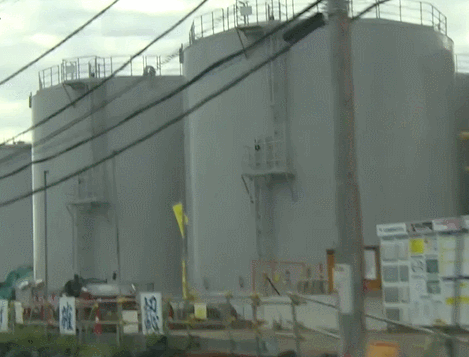
日方此举真的符合国际法吗?
Is Japan's move really in line with international law?
日方排海工作预计2年后开始,将持续30年,拟排放核废水超过100万吨,排放数量之大,持续时间之长、涉及地域之广、风险等级之高前所未有。对这极不负责的行为,国际社会进行了强烈谴责。
It is estimated that Japan's sea discharge will start in two years and last for 30 years. It plans to discharge more than 1 million tons of nuclear waste water. The quantity, duration, area and risk level of the discharge are unprecedented. The international community has strongly condemned this extremely irresponsible act.
4月14日,“日方此举真的符合国际法吗?”外交部发言人赵立坚向日方发问。林灿铃表示,首先,“尊重国家主权和不损害国外环境”是国际环境法的基本原则,是各国都必须遵守的行为准则。另外,一些国际条约也设定了在该领域的国际义务,如《防止倾倒废物及其他物质污染海洋的公约》(简称《伦敦公约》)、《联合国海洋法公约》等。国际原子能机构总干事格罗西14日在接受中国媒体采访时表示,日本向太平洋排放的核废水不应对环境造成损害。
On April 14, "is Japan's move really in line with international law?" Foreign Ministry spokesman Zhao Lijian asked the Japanese side questions. Lin Canling said that first of all, "respecting national sovereignty and not harming the foreign environment" is the basic principle of international environmental law and a code of conduct that all countries must abide by. In addition, some international treaties also set international obligations in this field, such as the Convention on the prevention of marine pollution by dumping of wastes and other substances (London Convention for short) and the United Nations Convention on the law of the sea. In an interview with Chinese media on the 14th, International Atomic Energy Agency Director General Grossi said that Japan's nuclear waste water discharged into the Pacific should not cause environmental damage.
日本偷排该咋办?
What should Japan do to steal volleyball?
既然核废水对海洋生态和人类生产生活影响如此之大,对于日本此次倾倒核废水的行为,国际社会应如何监督,从法律上又有怎样的应对手段?
Since nuclear waste water has such a great impact on marine ecology and human production and life, how should the international community supervise Japan's dumping of nuclear waste water and what legal measures should be taken?
对于监控日本偷排的措施,陈尚说,为防止日本擅自向海洋排放射性废水,世界各国可以合作,调用高精度卫星监视福岛第一核电站厂区和放射性废水储存区,每天从空中拍一张遥感照片,可以及时发现放射性废水储存罐是否减少,结合船舶靠港离港轨迹等信息,进而判断是否存在未经许可的倾倒。
As for the measures to monitor Japan's illegal discharge of radioactive waste water, Chen Shang said that in order to prevent Japan from discharging radioactive waste water into the sea without authorization, countries around the world can cooperate and use high-precision satellites to monitor the plant area and radioactive waste water storage area of Fukushima Daiichi nuclear power plant, take a remote sensing photo from the air every day, so as to find out whether the number of radioactive waste water storage tanks has decreased in time, and combine with the information such as the berthing and departing tracks of ships, Then judge whether there is unauthorized dumping.
林灿铃说,日本本身就是一些相关条约的缔约国,应敦促日本严格遵守相关条约规范,诚实履行相关国际义务。除此之外,在没有得到安全确认前,国际社会要监督日本不能将核废水倾倒入海。最后,应组成联合调查团实地调查、检测以确认核废水的真实情况,包括相关成分的含量、危险性、危害性等,公开公布相关数据。当然,如果造成损害后果确定,无论是即时的还是潜在的。受害者当然可以依法向日本提起诉讼,追究其法律责任。
Lin Canling said that Japan itself is a party to some relevant treaties and should be urged to strictly abide by relevant treaty norms and faithfully fulfill relevant international obligations. In addition, the international community should supervise Japan not to dump nuclear waste water into the sea without obtaining safety confirmation. Finally, a joint investigation team should be formed to conduct on-site investigation and test to confirm the true situation of nuclear waste water, including the content, danger and harmfulness of relevant components, and the relevant data should be published publicly. Of course, if the consequences of damage are determined, whether immediate or potential. Of course, the victims can bring a lawsuit to Japan in accordance with the law to investigate their legal responsibility.

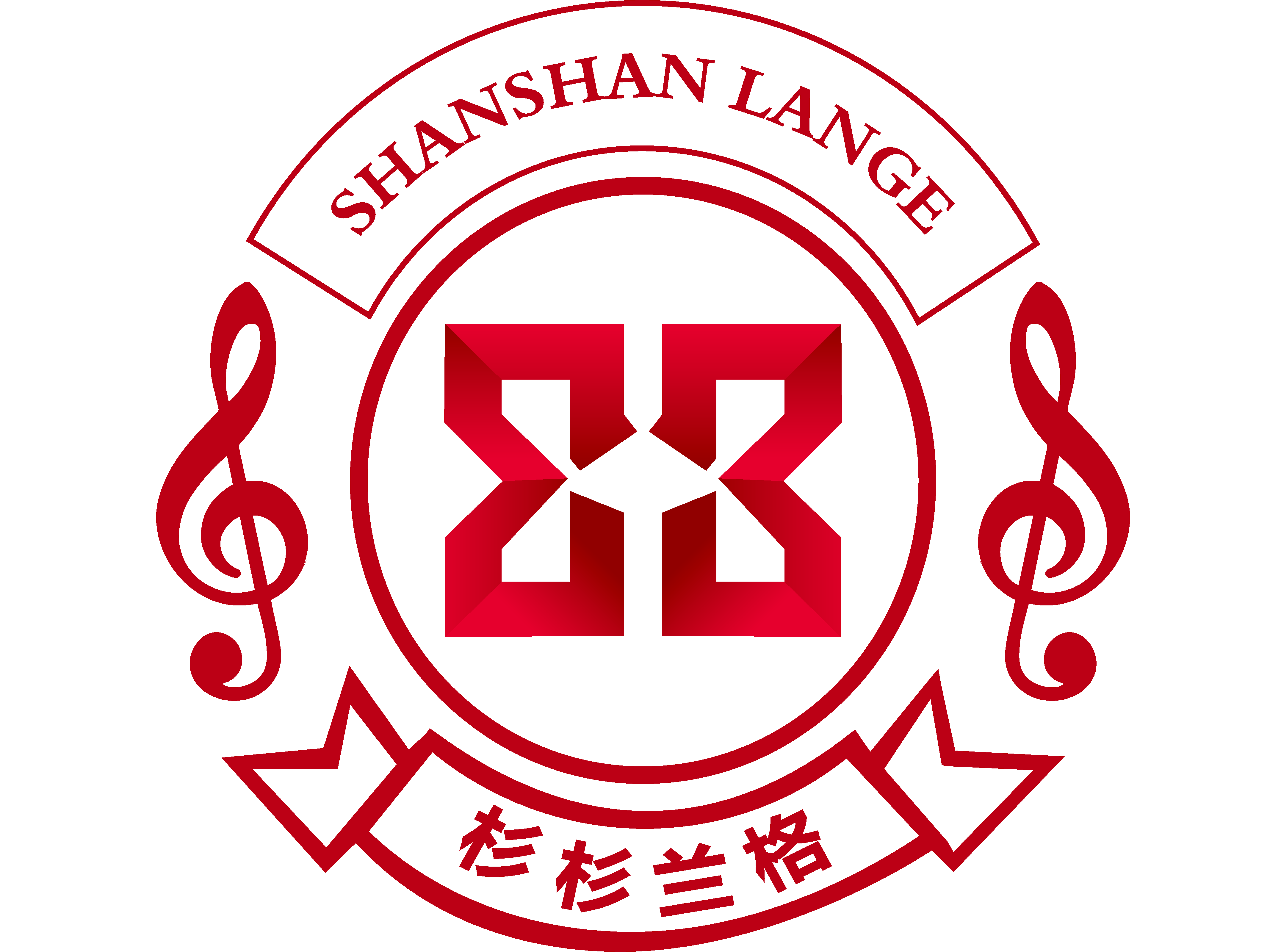
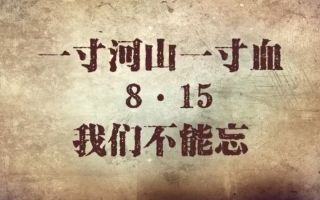

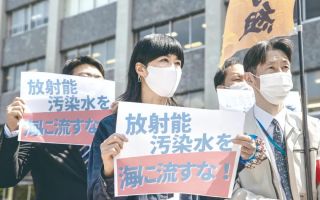

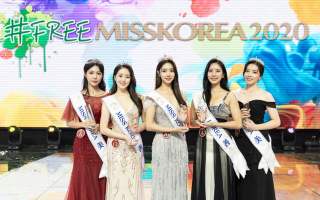

0 条 评 论 Write a Response